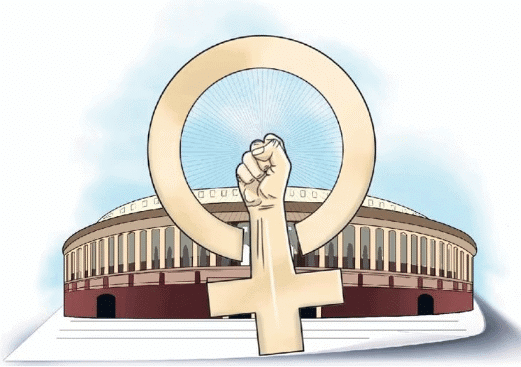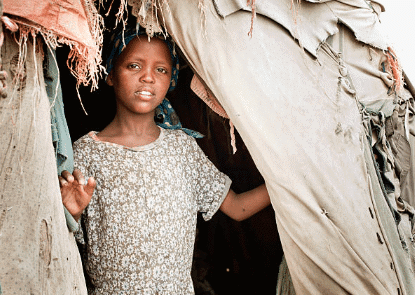NCERT Solutions for Class 11 Political Science - Citizenship
Q1: Citizenship as full and equal membership of a political community involves both rights and obligations. Which rights could citizens expect to enjoy in most democratic state today? What kind of obligation will they have to their state and fellow citizens?
Ans: The rights that citizens are expected to enjoy most in democratic state are right to equality, right to vote in political elections, freedom of expression, right to have basic facilities, right to security and equal treatment by laws.
There are legal and moral obligations on citizens to participate in and contribute to the shared life of the community as well as the state. Citizens are also expected to preserve the culture and natural resources of their country.
Q2: All citizens may be granted equal rights but all may not be able to equally exercise them. Explain.
Answer: While all citizens are granted equal rights, their ability to exercise them may differ due to factors like poverty, illiteracy, and socio-economic conditions. The state may provide basic rights and a minimum standard of living, but challenges persist for marginalized groups.
Urban Slum Dwellers:
Slum-dwellers, often engaged in essential low-wage work, live in poor conditions with limited support from authorities. Their lack of a permanent address makes it difficult for them to exercise political rights, such as voting. While some NGOs and initiatives like the 2004 National Policy on Urban Street Vendors attempt to help, progress remains slow.Tribal Communities:
Tribal people and forest-dwellers, dependent on natural resources, face threats to their livelihood and displacement due to development projects. The government struggles to protect their rights while balancing national development needs.
True equality requires policies that consider the diverse needs of different groups, enabling all citizens to fully exercise their rights.
Q3: Write a short note on any two struggles for full enjoyment of citizen rights which have taken place in India in recent years. Which rights were being claimed in each case?
Ans:
- Dalit Rights Struggles: In recent years, Dalits have actively struggled for equal rights and social justice. Movements like the Bhima Koregaon protests have highlighted issues such as caste-based discrimination and the need for better implementation of reservation policies. Dalits have demanded their rightful share in educational institutions, jobs, and political representation. The right to dignity and reservation in education and employment have been central to these struggles.
- Women’s Reservation Movement: Women in India have also fought for greater political representation. The demand for 33% reservation for women in Lok Sabha and state legislative assemblies has been a major focus of these movements. Despite legislative hurdles, the call for gender equality and political empowerment remains strong. Women seek not only equal participation in politics but also the right to decision-making roles in governance.

These struggles reflect the ongoing efforts to ensure equal participation and representation for marginalized groups in India, as promised by the Constitution.
Q4: What are some of the problems faced by refugees? In what ways could the concept of global citizenship benefit them?
Ans: Refugees face several challenges, including:
- Forced Displacement: Many refugees are displaced due to wars, natural disasters (like tsunamis or earthquakes), or famine. They often cannot return to their home countries, and few states are willing to accept them.
- Living Conditions: Refugees are often forced to live in camps or as illegal migrants, facing severe restrictions on their ability to work, educate their children, or acquire property.
- Legal and Social Exclusion: They may lack legal rights and protection, making it difficult for them to integrate into society or access basic services.
To address these issues, the United Nations High Commissioner for Refugees (UNHCR) provides support.
Benefits of Global Citizenship for Refugees:
- Cross-border Cooperation: Global citizenship could facilitate collective action across borders to address refugee issues more effectively.
- Basic Rights and Protection: It can ensure that refugees receive basic rights, such as the right to work, access education, and live with dignity, regardless of the country they are in.
- Sustainable Solutions: It could help find long-term solutions to the challenges faced by refugees, encouraging cooperation between states.

Q5: Migration of people to different regions within the country is often resisted by the local inhabitants. What are some of the contributions that the migrants could make to the local economy?
Ans: Migration occurs within cities, regions, and nations, often facing resistance from local inhabitants due to limited resources and job opportunities. Struggles over migration have been seen in places like Mumbai, where local citizens sometimes resist the influx of outsiders.
However, migrants can make significant contributions to the local economy in the following ways:
- Labor Force: Migrants often fill essential low-wage jobs as hawkers, petty traders, mechanics, plumbers, and other labor-intensive roles.
- Economic Support: Through their work, migrants contribute to the local economy by providing affordable services and maintaining local businesses.
- Small Business Growth: Migrants also help develop small-scale businesses, such as tailoring and textile printing, particularly in areas like slums where such enterprises can thrive.
In these ways, migrants play a crucial role in supporting and growing the local economy.
Q6: “Democratic citizenship is a project rather than an accomplished fact even in countries like India which grant equal citizenship”. Discuss some of the issues regarding citizenship being raised in India today.
Ans: In India, democratic citizenship is an evolving concept, not yet fully realized. While the country grants equal citizenship, several issues continue to raise questions about its true implementation:
Refugees and Displacement:
People displaced by war, such as refugees from Bangladesh (1971) or from countries like Afghanistan, Pakistan, and Myanmar, often face challenges in obtaining Indian citizenship. Though India has provided refuge to persecuted individuals like the Dalai Lama in 1958, many displaced people remain stateless or live as illegal migrants, without formal citizenship, for generations.Illegal Migration and Security Risks:
Some migrants enter India illegally, often aided by smugglers, with potential involvement in criminal activities like drug trafficking or terrorism. This creates tensions between national security concerns and the rights of migrants seeking refuge.Statelessness:
Many refugees remain stateless and face difficulties in accessing basic rights and services. Citizenship remains elusive for many, undermining the promise of equal rights for all.
These issues demonstrate that while India may grant equal citizenship, the actual realization of democratic citizenship remains a work in progress, with challenges related to displacement, security, and statelessness.
|
142 videos|778 docs|202 tests
|
FAQs on NCERT Solutions for Class 11 Political Science - Citizenship
| 1. What is the significance of citizenship in a democratic country? |  |
| 2. What are the different ways one can acquire citizenship? |  |
| 3. What rights do citizens have in India? |  |
| 4. How does citizenship impact an individual's responsibilities towards the state? |  |
| 5. What is the role of citizenship in promoting social justice? |  |






















